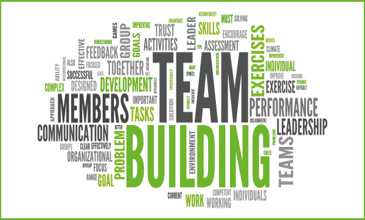A.I. and Lean Portfolio Management

Jimi McManus
Mindy’s Executive Coaching, LLC
Artificial Intelligence (A.I.) and Lean Portfolio Management: An Introduction

Lean Portfolio Management Apostle
Introduction
In today’s fast-paced business environment, organizations are continuously seeking ways to optimize their operations, enhance decision-making, and drive better outcomes. Lean Portfolio Management (LPM) is a proven approach to managing the flow of work in an organization, ensuring alignment with strategic goals while optimizing resource utilization. On the other hand, Artificial Intelligence (AI) offers unprecedented capabilities to analyze data, predict trends, and automate processes. The convergence of AI and Lean Portfolio Management represents a powerful synergy that can revolutionize how organizations manage their portfolios, making them more efficient, responsive, and aligned with their strategic objectives.
Understanding Lean Portfolio Management
Lean Portfolio Management is a set of practices and principles that apply lean thinking to the management of a portfolio of projects and initiatives. The goal is to maximize the flow of value through the organization by ensuring that the right work is being done at the right time by the right people. LPM is built on three core pillars:
- Strategy and Investment Funding: Aligning portfolio investments with the organization’s strategic goals and ensuring that resources are allocated to the most valuable initiatives.
- Agile Portfolio Operations: Managing the flow of work through the portfolio, ensuring that initiatives are progressing as planned and that any impediments are swiftly addressed.
- Lean Governance: Establishing lightweight governance structures that enable rapid decision-making and continuous improvement.
By applying lean principles, organizations can reduce waste, increase transparency, and improve the overall efficiency of their portfolio management processes.
The Role of Artificial Intelligence in Lean Portfolio Management
Artificial Intelligence, with its capabilities in data analysis, machine learning, and automation, can significantly enhance Lean Portfolio Management. Here are several ways AI can be integrated into LPM:
- Data-Driven Decision Making: AI can analyze vast amounts of data from various sources to provide insights into project performance, resource utilization, and market trends. This enables portfolio managers to make more informed decisions.
- Predictive Analytics: Machine learning algorithms can predict project outcomes, potential risks, and resource needs, allowing for proactive management of the portfolio.
- Automation of Routine Tasks: AI can automate repetitive tasks such as reporting, data entry, and status updates, freeing up human resources to focus on higher-value activities.
- Optimization of Resource Allocation: AI can optimize the allocation of resources across the portfolio, ensuring that the most critical projects receive the necessary support.
- Enhanced Collaboration: AI-powered tools can facilitate communication and collaboration among team members, improving coordination and reducing delays.
Implementing AI in Lean Portfolio Management
To effectively integrate AI into Lean Portfolio Management, organizations should follow a structured approach. Here are the key steps:
- Identify Opportunities for AI Integration: Begin by identifying areas within your LPM processes where AI can add value. This could include data analysis, predictive modeling, automation of routine tasks, or optimization of resource allocation.
- Develop a Data Strategy: AI relies on data, so it’s essential to have a robust data strategy in place. Ensure that you have access to high-quality, relevant data and establish processes for data collection, storage, and management.
- Select the Right AI Tools and Technologies: Choose AI tools and technologies that align with your organization’s needs and capabilities. This could include machine learning platforms, data analytics tools, or AI-powered project management software.
- Build AI Capabilities: Invest in building AI capabilities within your organization. This could involve hiring AI experts, training existing staff, or partnering with external AI consultants.
- Pilot AI Initiatives: Start with pilot projects to test the effectiveness of AI in your LPM processes. Use the insights gained from these pilots to refine your approach and scale up AI integration across the portfolio.
- Monitor and Improve: Continuously monitor the impact of AI on your LPM processes and make adjustments as needed. Use feedback and data to drive continuous improvement.
Case Study: AI-Driven Lean Portfolio Management in Action
Let’s look at a hypothetical case study of an organization that successfully integrated AI into its Lean Portfolio Management processes.
Company Background: ABC Corporation is a global technology company with a diverse portfolio of projects and initiatives. The company was facing challenges in managing its portfolio effectively, with issues such as resource constraints, project delays, and misalignment with strategic goals.
AI Integration Steps:
- Identifying Opportunities: ABC Corporation identified several areas where AI could add value, including project prioritization, resource allocation, and risk management.
- Developing a Data Strategy: The company established a comprehensive data strategy, integrating data from project management tools, financial systems, and market research.
- Selecting AI Tools: ABC Corporation selected a combination of AI tools, including a machine learning platform for predictive analytics and an AI-powered project management software.
- Building AI Capabilities: The company invested in training its portfolio management team on AI technologies and hired AI experts to support the integration process.
- Piloting AI Initiatives: ABC Corporation started with pilot projects focused on optimizing resource allocation and predicting project risks. These pilots provided valuable insights and demonstrated the potential benefits of AI.
- Scaling Up: Based on the success of the pilots, the company scaled up AI integration across its portfolio, continuously monitoring and improving its processes.
Results: By integrating AI into its Lean Portfolio Management processes, ABC Corporation achieved several significant benefits:
- Improved Decision-Making: AI-driven insights enabled more informed decision-making, ensuring that resources were allocated to the most valuable projects.
- Increased Efficiency: Automation of routine tasks reduced the administrative burden on portfolio managers, allowing them to focus on strategic activities.
- Enhanced Risk Management: Predictive analytics helped identify potential risks early, enabling proactive mitigation measures.
- Better Alignment with Strategic Goals: AI ensured that the portfolio remained aligned with the company’s strategic objectives, driving better overall outcomes.
Challenges and Considerations
While the integration of AI into Lean Portfolio Management offers significant benefits, it also presents several challenges and considerations:
- Data Quality: AI relies on high-quality data to generate accurate insights. Ensuring data quality and integrity is crucial for the success of AI initiatives.
- Change Management: Integrating AI into LPM processes requires changes in how work is done. Effective change management strategies are essential to ensure buy-in and adoption by the team.
- Ethical Considerations: AI applications should be designed and implemented with ethical considerations in mind, ensuring transparency, fairness, and accountability.
- Continuous Learning: AI technologies are constantly evolving. Organizations need to stay updated with the latest developments and continuously refine their AI strategies.
The Future of AI and Lean Portfolio Management
The future of Lean Portfolio Management will undoubtedly be shaped by advancements in AI. Here are some emerging trends and future directions:
- AI-Driven Strategic Planning: AI will play a more prominent role in strategic planning, helping organizations identify emerging trends, forecast market changes, and make data-driven strategic decisions.
- Real-Time Portfolio Management: AI will enable real-time monitoring and management of portfolios, providing up-to-date insights and allowing for more agile and responsive decision-making.
- Enhanced Human-AI Collaboration: The future will see a greater emphasis on collaboration between humans and AI, leveraging the strengths of both to drive better outcomes.
- Personalized Portfolio Management: AI will enable more personalized approaches to portfolio management, tailoring strategies and processes to the unique needs and goals of individual organizations.
Conclusion
The integration of Artificial Intelligence into Lean Portfolio Management represents a transformative opportunity for organizations to enhance their portfolio management processes. By leveraging AI’s capabilities in data analysis, predictive analytics, and automation, organizations can improve decision-making, optimize resource allocation, and drive better alignment with strategic goals. However, successful integration requires a structured approach, a robust data strategy, and a commitment to continuous improvement. As AI technologies continue to evolve, the future of Lean Portfolio Management will be characterized by greater efficiency, responsiveness, and strategic alignment, ultimately driving better outcomes for organizations.
The journey to integrating AI with LPM is challenging but immensely rewarding. By embracing this powerful synergy, organizations can unlock new levels of performance and innovation, staying ahead in an increasingly competitive and dynamic business landscape.
About the Author
Jimi McManus
Chief Transformation & Operations Officer | COO | Freelance Contractor at Mindy's Executive Coaching, LLC. Jimi McManus is a dynamic and innovative professional with a rich history of achievements in technology and business transformation. With over 20-years experience, Jimi has carved a niche in leading Agile, business, and digital transformations, cross-functional teams, and driving strategic initiatives that streamline operations and foster growth. A graduate of Watterson College Pacific, Jimi's career began in San Diego with General Telephone and Equipment (GTE), where he quickly became known for his adeptness at navigating the complexities of tech start-ups and scaling operations to meet market demands. His expertise spans Artificial Intelligence (AI), coaching, mentoring, teaching, training, Lean Portfolio Management, product development and management, software development, program/project management, and Agile, business, and digital transformation, making him a sought-after consultant for Fortune 50 companies and up as well as any entity looking to modernize their infrastructures and enhance their digital capabilities. Beyond his professional endeavors, Jimi is passionate about mentoring the next generation of tech leaders. He actively participates in industry conferences, sharing his insights on emerging technologies and the future of work. Known for his hands-on approach and collaborative spirit, Jimi inspires those around him to strive for excellence and innovation. In his spare time, Jimi enjoys being outdoors (biking, hiking, golfing, paddle boarding, etc.) drawing parallels between the creativity in his outdoor endeavors and the innovative solutions he develops in his professional life. Whether he's on stage performing or in the boardroom strategizing, Jimi's unique blend of technical prowess and creative thinking sets him apart as a leader and visionary.Categories
Recent Posts

Team Building: An Introduction to the New Blog
Team Building

Leadership Development: An Introduction Presented by MEC’s Leadership Development Apostle
Leadership Development: An Introduction

Christian-Based Foundational Principles of Executive Coaching – Presented by Mindy’s Executive Coaching, LLC’s Salt of the Earth’s EC Apostle
Christian Executive Coaching Foundational Principles of Executive Coaching

Artificial Intelligence (A.I.) and Lean Portfolio Management? An Introduction – Brought to You by the LPM Apostle
A.I. and Lean Portfolio Management

Christian Executive Coaching Blog: Introduction to Christian Executive Coaching Presented by Mindy’s Executive Coaching, LLC’s EC Apostle
Executive Coaching Blog: Christian Executive Coaching


